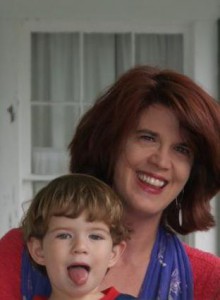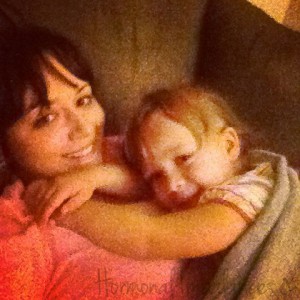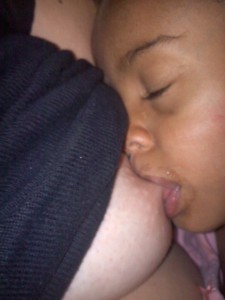Today, guest blogger Ariadne Brill shares how she gently and sensitively transitioned her children to their first drop-off activity.
Gently and Sensitively Separating for Drop-off Activities

by Ariadne Brill
Drop off activities can be such a fun and rewarding experience for preschoolers and school children. From dance camp to cooking class to swim team, most children love such activities. Yet, sometimes children feel some anxiety surrounding the drop off and the time away from mom and/or dad. The anticipation of separating from a parent can sometimes lead children to resist the transition time from home to the drop off activity, making the simple tasks like putting on shoes, to entering the building really difficult. Some children are very verbal and may yell, others may cry, others may simply plant themselves stiff as a tree and simply not budge!
So what to do? I was once told to take the Band-Aid approach, set them off and walk away no matter what, but that just did not sit right with us as a family. So it got me thinking, how can I help my children gently but confidently transition from home to a drop off activity?
Listen
When my children were about ready to start swimming classes they were a bit apprehensive. During our regular special time we had a chat to prepare for this new activity. In this time both boys told me some things they were worried about. They didn’t know the pool, didn’t know the teacher, didn’t know where I was going to be and they were pretty sure they were going to be “way too hungry” when the class is over. Armed with this information we made a plan and this is how it worked:
Preview
Knowing my children really wanted a chance to see what this pool was all about I set up a preview day with the swim center. We were able to see the locker room, the showers, the swimming pools, meet the teachers and just calmly take our time to see the place. In having a chance to look around, both boys were able to become familiar with the pool and on the first day of class it wasn’t all new and scary.
Meet-and–Greet
Aside from having a preview of the actual location, I made sure to set up a quick meet and greet with the swim teacher. Often for school and preschool students have a chance to meet their teacher ahead of time or use some sort of transition time attending school with mom/dad a few hours before braving it alone. Yet with drop off activities it’s often the case that children are expected to dive right in. I knew it would be important for us to trust and know the teacher before walking away from me. I explained this to the teacher who was very accommodating and more than happy to meet with us.
Make a Deal
Needing to know exactly where I was going to be was really important to my younger son. Having just turned four, he just needed some extra re-assurance that I would be nearby and definitely there at the end of class. We found a spot in the swim center that overlooks the pool where his class is and we made a deal. We would do hugs and kisses and he would go to his teacher. Then I would go to a spot watching over his class where he could see me. Over time, we have progressed to where I can wave to him at that spot and leave and return in time to watch “jumping” time at the end of the lesson.
Reconnect
When class is over, I make sure to be at the pick-up location right away where both boys can see me. Even though it is evening and technically we should be in a hurry to head home, I try to make sure to greet each boy with a hug and asked them “How was class?” I like to keep the question open so they can feel comfortable telling me whatever they really think of the class. Once we have had a chance to re-connect I support the boys with whatever help they may need getting dressed (although unless there is a tricky button they do this on their own) and packing up.
Favorite Moments
One really empowering tool for both boys has been recalling favorite moments on the way to swim class. After the first class the boys were generally happy but a bit shaky about the whole process. We talked about how the class was and what if anything they had really liked about the class. The following week on the way to class I asked them if they remembered their favorites from the week before. We started singing about them in the car “splashing, splashing, kicking, kicking, hello pool noodle” As the weeks progressed, the list of favorites got longer and longer and we review these in some fun way on the drive over each week.
Listening to the boys, being patient, giving the boys a chance to get to know and trust their new surroundings and new teacher has worked really well for us. Oh, remember that the boys were worried about being hungry after class? We always make sure to bring a snack along!
So, have you tried any drop off activities with your child? How has the transition worked for your family?
Ariadne has three children, she practices peaceful, playful, responsive parenting and is passionate about all things parenting and chocolate. Ariadne is a Certified Parenting Educator and the creator of The Positive Parenting Connection <http://










